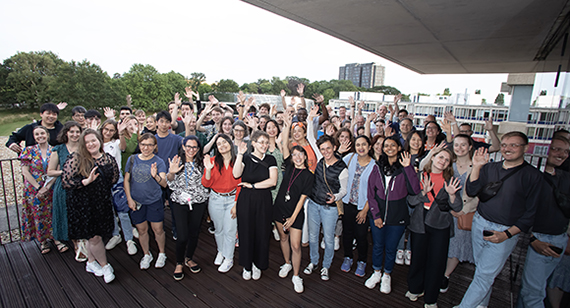Please note: This course will be taught in hybrid mode. Hybrid delivery of courses will include synchronous live sessions during which on campus and online students will be taught simultaneously. The application form will be updated shortly to reflect this.

Camille R. Quinn, PhD, AM, LCSW, LISW-S, LMSW, is an associate professor of community engagement research in the School of Social Work at the University of Michigan (USA). She has taught research methods for more than five years and developed the first Mixed Methods Research course for doctoral students at The Ohio State University in 2019 and revised the doctoral level Mixed Methods Research course for undergraduate and graduate students at the University of Michigan in 2023. Dr. Quinn uses both mixed methods and community based participatory research to develop and tailor culturally responsive interventions for Black girls who are involved with the youth punishment system to enhance their mental health equity and crime desistance. Currently, she is the Principal Investigator of two National Institute of Health funded studies: Loan Repayment Program—LRP renewal award and an R21 grant. The LRP is investigating legal system-involved Black girls’ and their caregivers’ stress and protective factors. The R21 grant is a two-phase mixed methods study funded by the National Institute of Health (2R21MD016940-01A1). Phase I includes surveys and interviews from 10 Black girl-caregiver pairs to understand treatment barriers and adapt the intervention to meet participants’ needs. Phase II includes a test of the adapted intervention with 25 Black girl-caregiver pairs to assess if it is feasible, well-received, and effective. Participants will complete surveys at the start, right after the intervention (about 3 months later), and again 6 months later. We will measure PTSD symptoms (main focus) along with stress levels using cortisol from their hair, recidivism, racial identity, personal agency, and parent-child relationships. The study findings will be integrated based on the two types—quantitative and qualitative data. She is also the PI of a MacArthur Foundation Safety and Justice Challenge grant to promote criminal justice reform. Her newest project includes a modified mixed methods study of African girls residing in Michigan to assess their vulnerability to arrest. Dr. Quinn is a NIH LRP Ambassador and a Senior Scholar with the Center on Gender Justice & Opportunity at Georgetown University. She is a Society for Social Work Research Fellow, a 2023 Milestone Awardee from the University of Chicago Crown School of Social Work, Policy, and Practice (AM ’98) and a 2024 Innovation in Research and Teaching Awardee from the University of Michigan School of Social Work.
Course Content
Aspiring social scientists often wonder, “what is mixed methods research?” and “when should I use mixed methods in my research?” But before making decisions about using mixed methods research, other questions should be considered, such as “what is my philosophical stance?” “what is my ontological stance?” “what is my epistemological stance?” and “what is my research question?” In this course, I will introduce students to mixed methods research in the social sciences. This course will provide depth and breadth on developing well-refined and theoretically driven mixed methods studies, along with guidance on using appropriate methods and instruments during data collection, integration, and analysis. The course content will be enhanced by an overview of both qualitative and quantitative methods, separately, then an examination of these methods together, and their valuable contributions to mixed methods research. The course provides (1) an introduction to mixed methods research; (2) an examination of the philosophical and other assumptions, and paradigms that guide the decision to use mixed methods research; (3) a context for data analysis and integration; and (4) a framework for drawing conclusions from mixed methods that inform future research, practice, and policy. A primary aspect of the course will be to teach students how to determine if mixed methods are necessary, given the problem statement and research questions.
Course Objectives
By the end of the course, students will be able to: (1.) Adopt a philosophical, ontological, and epistemological stance(s) and highlight the major theoretical underpinnings guiding mixed methods research; (2.) Determine when someone should consider conducting a mixed methods study and understand the procedures for choosing a mixed methods design; (3.) Discuss measurement, sampling, and analyzing qualitative and quantitative data for mixed methods research; (4.) Describe ways to integrate and interpret qualitative and quantitative data to address a mixed methods research question; and (5.) Identify ways to disseminate results from mixed methods research.
Course Prerequisites
This is an introductory course. Participants are not required to have anything more than basic knowledge, comfort, and familiarity using one (or both) of the single methods (qualitative or quantitative).
Required text (will be provided by ESS):
Watkins, D. C. & Gioia, D. (2015). Mixed methods research. Pocket Guides to Social Work Research Methods Series. Oxford University Press: New York, NY. ISBN 9780199747450.
Creamer, E. G. (2018). An introduction to fully integrated mixed methods research. SAGE Publications. ISBN 978-1506358605.


